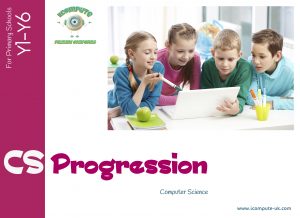How to plan a Primary Computing Scheme of Work
Many teachers are tasked with planning computing schemes of work for their schools.
Having produced many for iCompute, I know how huge and time consuming the task is. Here I share my tips about how to plan a computing scheme of work which ensures your school has a broad, balanced, rich and progressive scheme of work that will engage and challenge pupils of all abilities.
- Use free software and tools – you don’t need to buy a thing in order to meet the objectives of the computing curriculum
- Practice – helps you understand the knowledge, skills and understanding the software and tools help develop
- Look for progression – you will start to see that particular tools are suitable for specific age groups
- Look for full coverage – Computing is not just about coding
- Understand how to assess computing – know where your pupils are and where they need to go next
- Adapt – make it fit your school, staff and needs of your pupils





